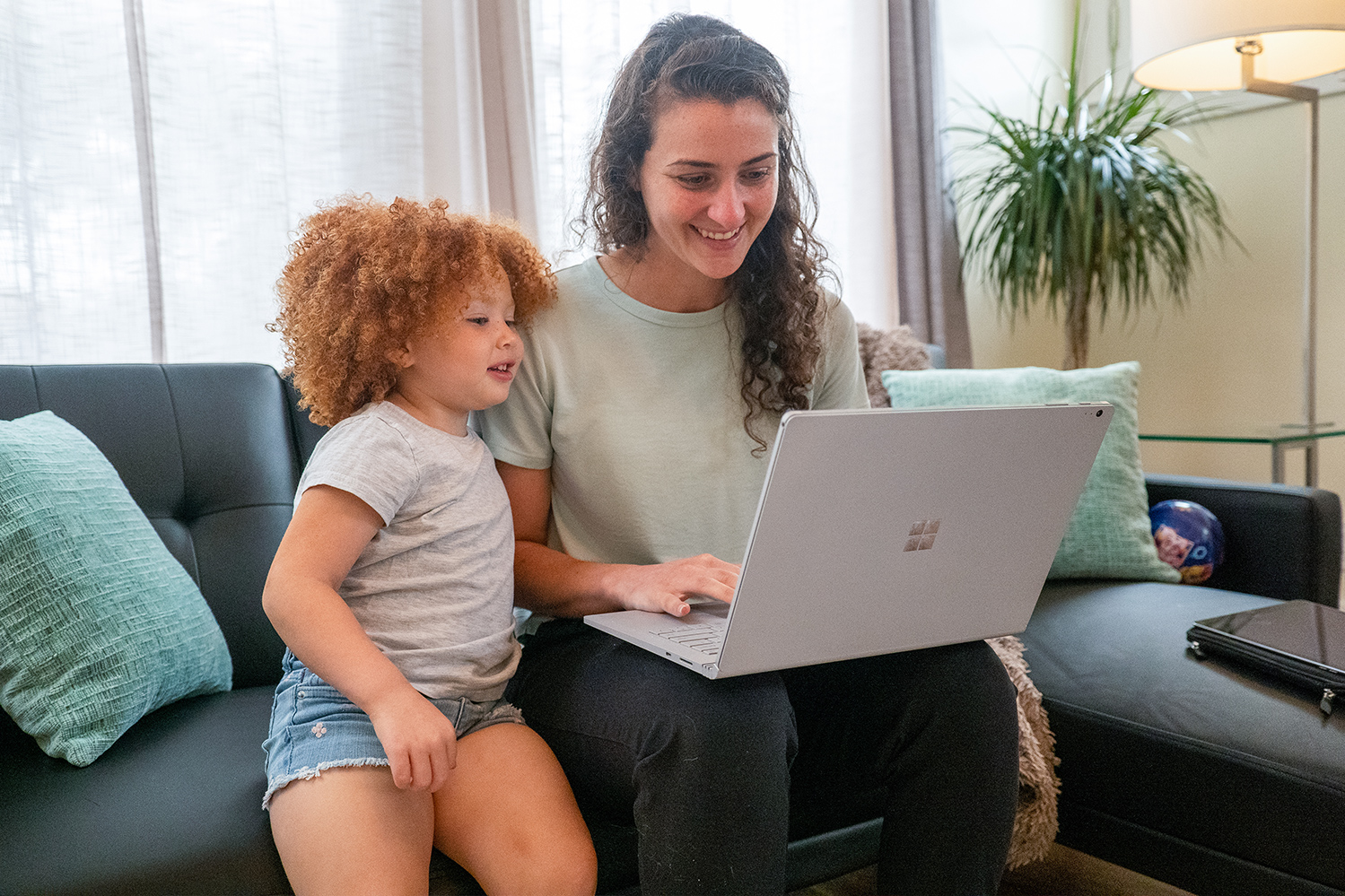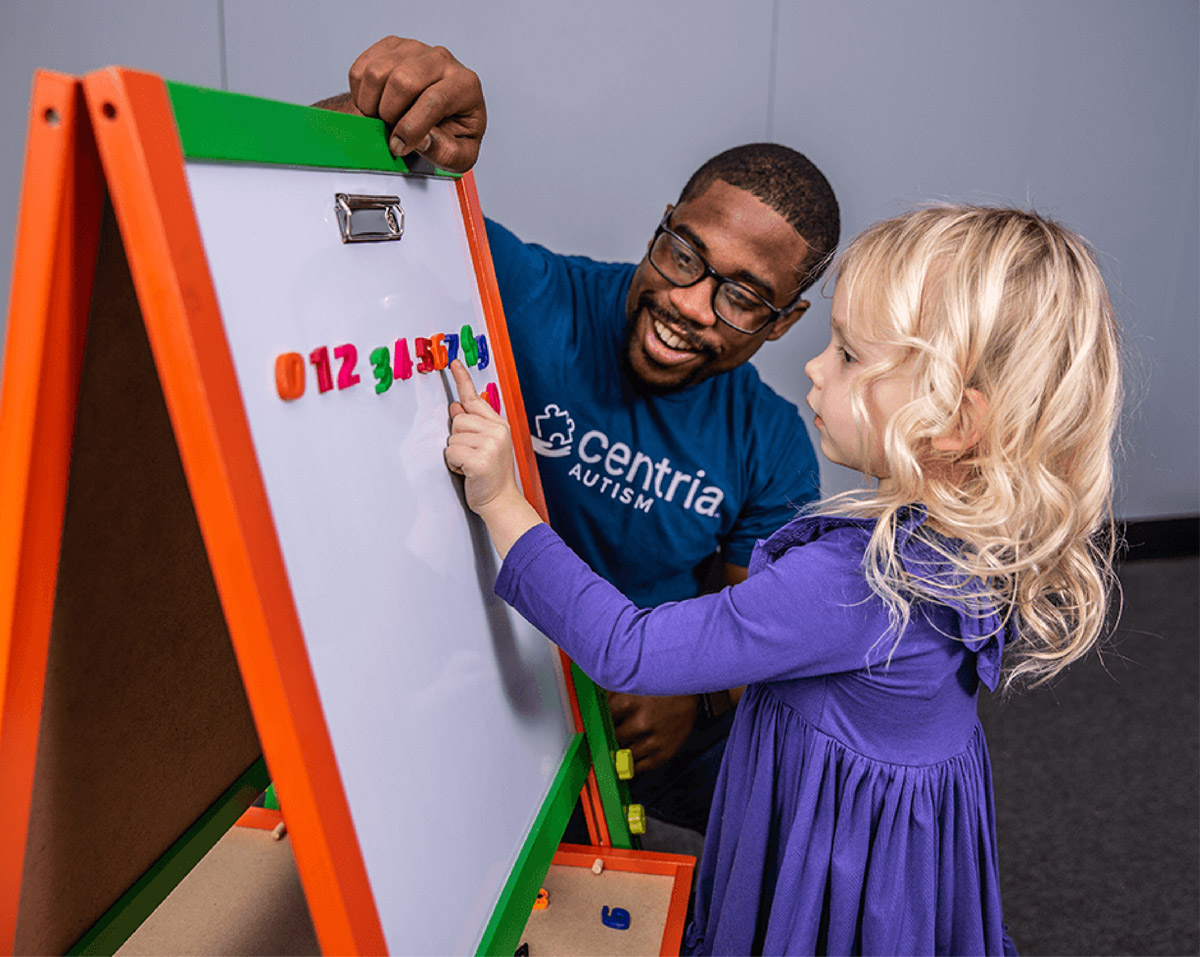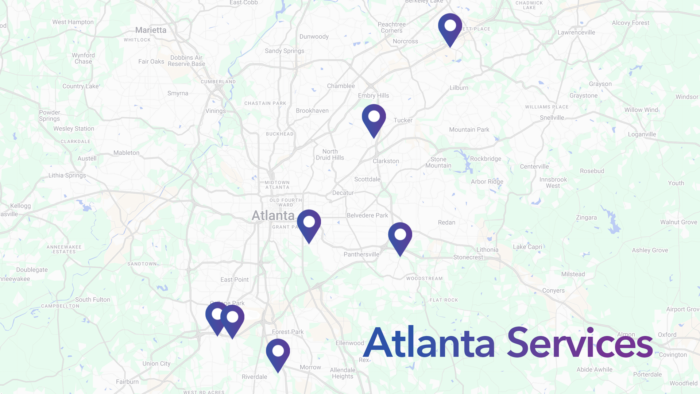
Applied Behavior Analysis (ABA) Therapy
Find Personalized ABA Therapy Near You

Discover Effective ABA Therapy
At Centria, our ABA therapy services are designed to ensure that every child is in a supportive, joyful environment where they feel motivated and eager to participate. Our compassionate, assent-based approach prioritizes your child’s willingness to engage, making our therapy sessions as enjoyable as they are effective.

We’ve helped over
10,000+ children
and counting to acquire essential life skills to help them reach their full potential.
What is ABA Therapy?
Applied Behavior Analysis (ABA) Therapy is a well-established, evidence-based approach designed to help individuals with autism develop essential skills and improve their quality of life.
By focusing on positive reinforcement and individualized strategies, ABA therapy helps children with autism learn new behaviors, enhance communication and navigate social interactions effectively. Our approach centers on client assent, ensuring that therapy is both engaging and productive.
Benefits of ABA Therapy

Reduction of Problematic Behaviors
Through our Foundations of Care therapy model, we have seen 90% of our clients reduce problematic behaviors to zero within 30 days. ABA therapy focuses on replacing challenging behaviors with positive alternatives.
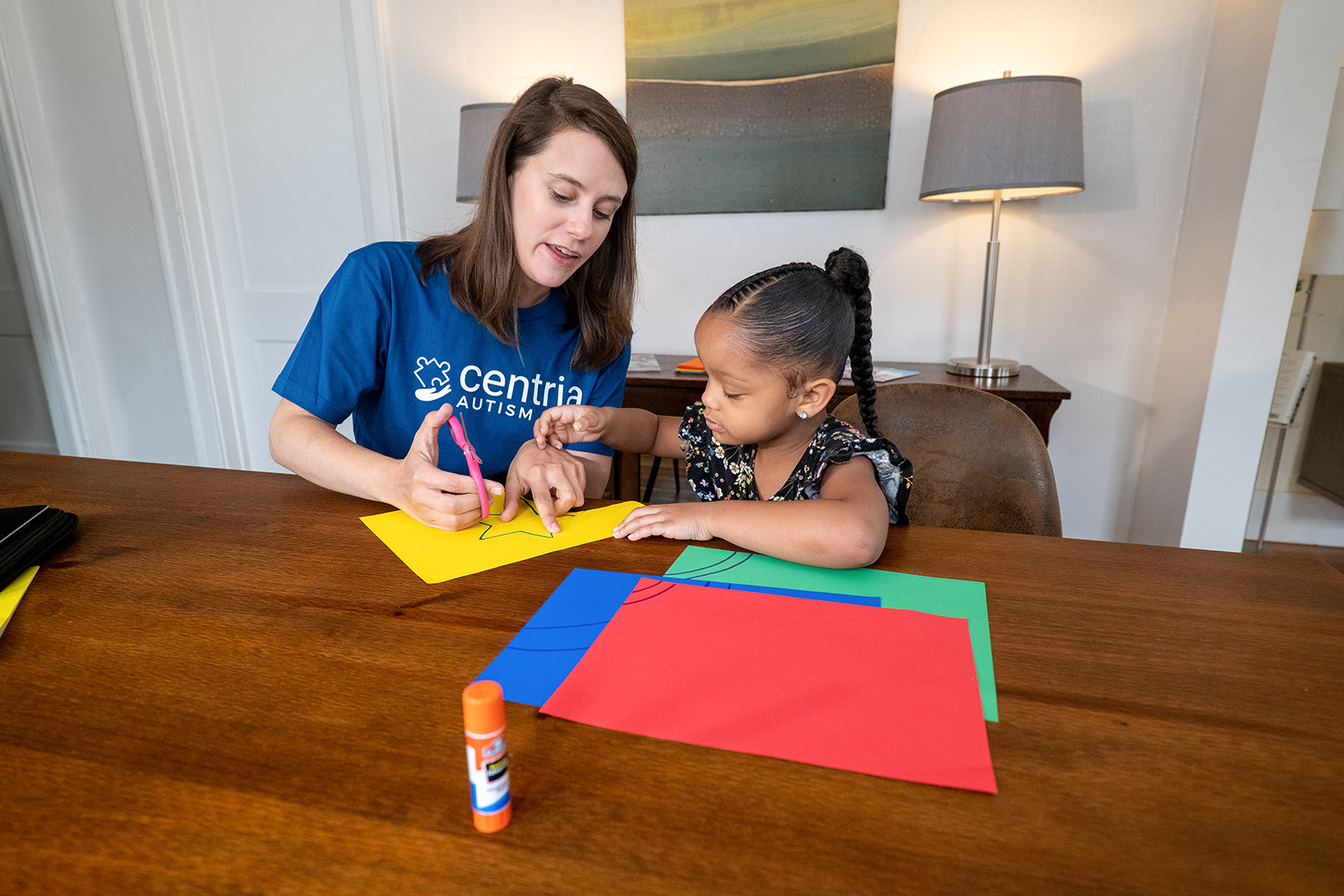
Improvement in Communication Skills
ABA therapy helps children develop verbal and non-verbal communication skills, enabling them to express their needs, desires and emotions more effectively.

Enhancement of Social Skills
Through structured interactions, children learn how to engage with others, understand social cues and build meaningful relationships.

Development of Adaptive Living Skills
ABA therapy also focuses on teaching essential adaptive living skills, such as self-care, organization and daily routines, which are crucial for independence and overall quality of life.
How ABA Therapy Works
Getting Started With ABA Therapy: At Centria, our approach to ABA therapy is comprehensive and tailored to each child’s unique needs. Our process includes:
Assessment and Goal Setting
Individualized Treatment Plan
Implementation and Monitoring
Family Engagement
Lasting Progress and Adaptability
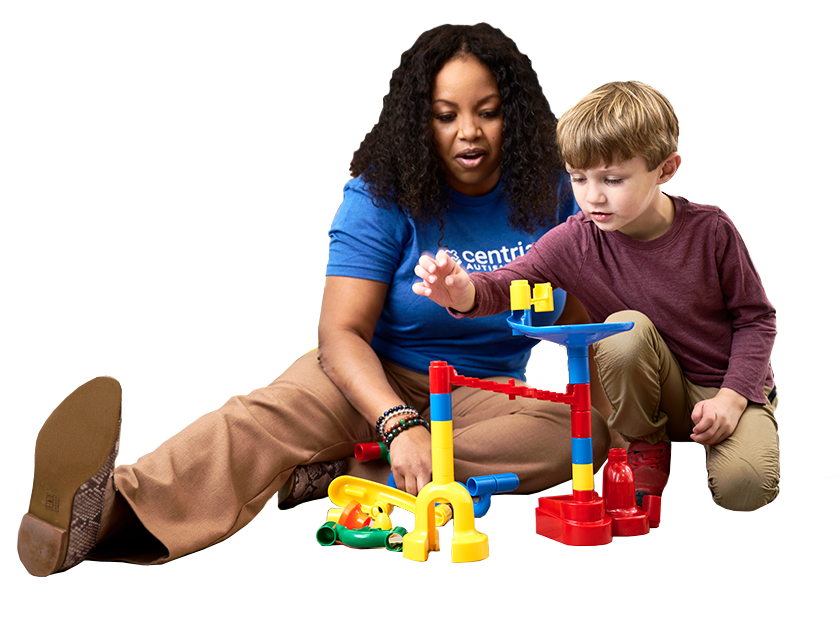
Our Approach to ABA Therapy Programs
Assessment and Evaluation
Our thorough assessment process identifies your child's unique needs and helps us tailor a therapy plan that aligns with their strengths and challenges.
Individualized Treatment Plan
We create personalized plans that are flexible and adaptive, ensuring that your child receives the most effective interventions.
Implementation and Monitoring
Our therapists work closely with your child, using positive reinforcement and other proven techniques to promote learning and development. We track progress carefully, making adjustments as needed.
Autism Therapy Settings
Centria offers ABA therapy in various settings to best meet your family’s needs.
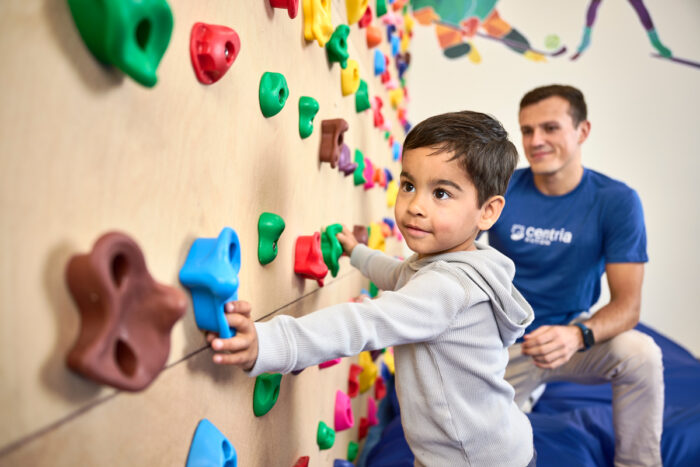
Center-Based ABA Therapy
Our centers provide a structured, social environment where your child can interact with peers and engage in a variety of learning activities. This setting is ideal for children who benefit from a more engaging and interactive atmosphere.
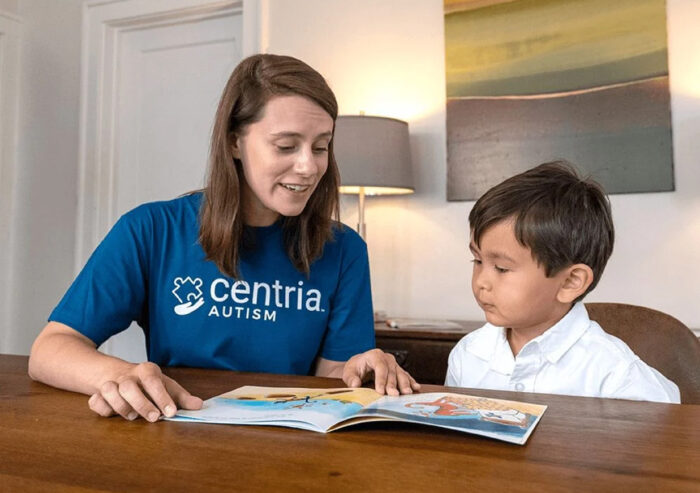
In-Home ABA Therapy
For children who thrive in the comfort of their own home, we bring our experienced therapists to you. In-home therapy allows for personalized, context-specific interventions that integrate seamlessly into your child’s daily routine.
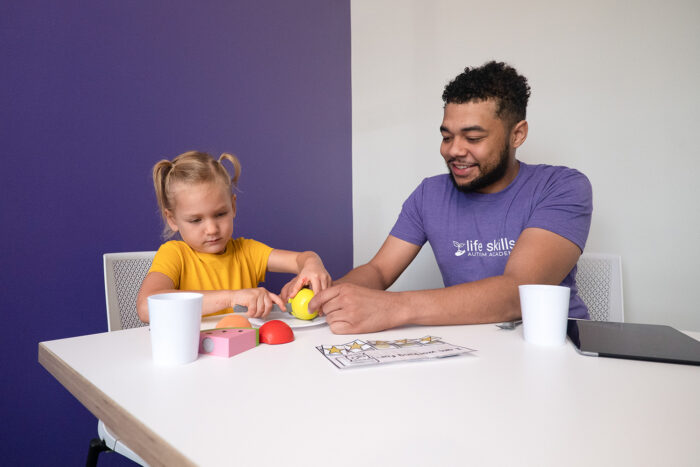
Life Skills Autism Academy
Life Skills Autism Academy focuses on early intervention, offering services for children 5 years old and younger. These centers mimic a school environment, emphasizing peer socialization and preparing your child for future success.
Cost and Insurance Coverage for ABA Therapy
Understanding the costs associated with ABA therapy and navigating insurance coverage can be complex. At Centria, we strive to make this process as straightforward as possible by offering guidance and support. Our team is here to help you understand your insurance benefits and explore funding options that may be available to you.

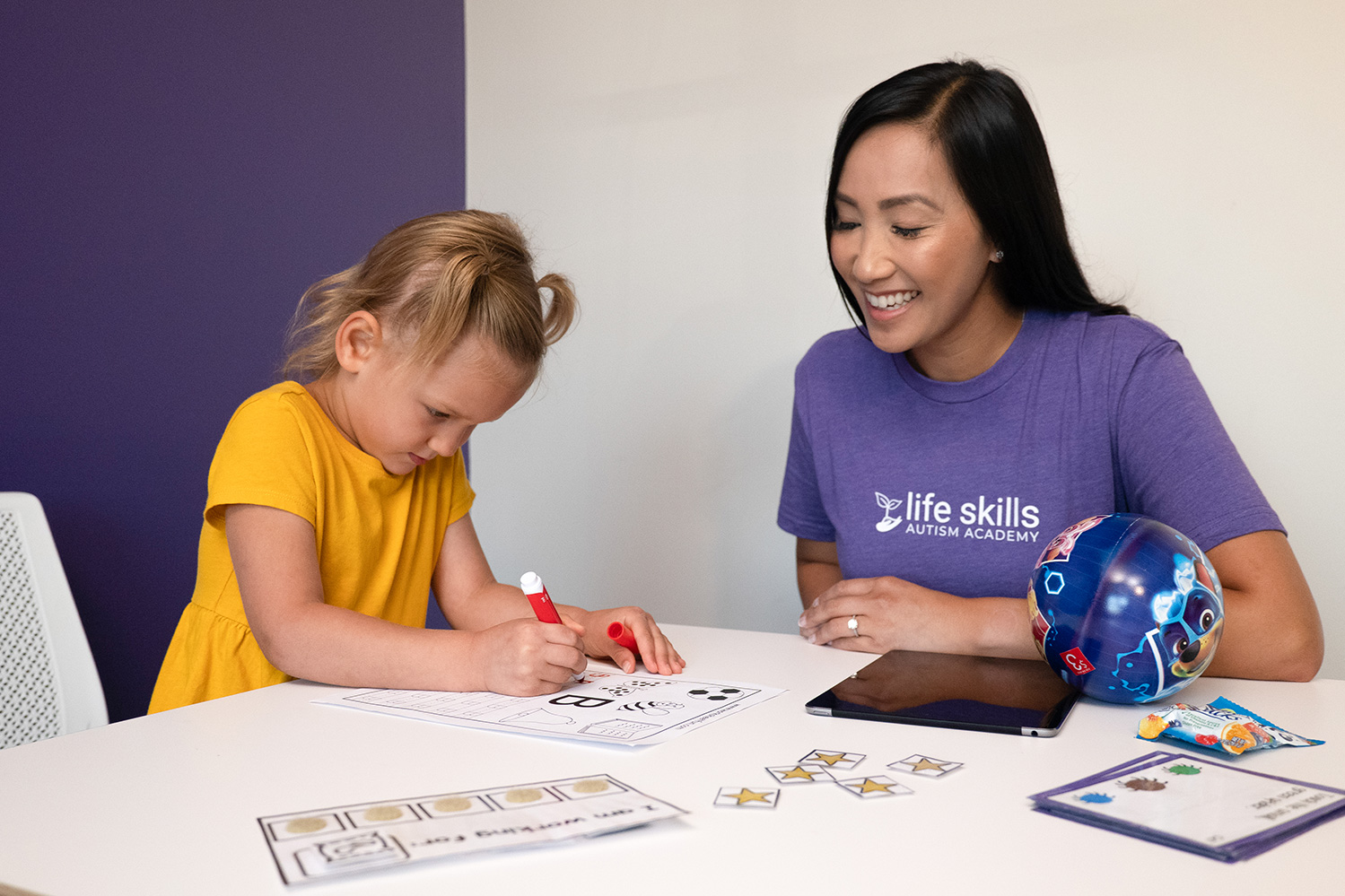
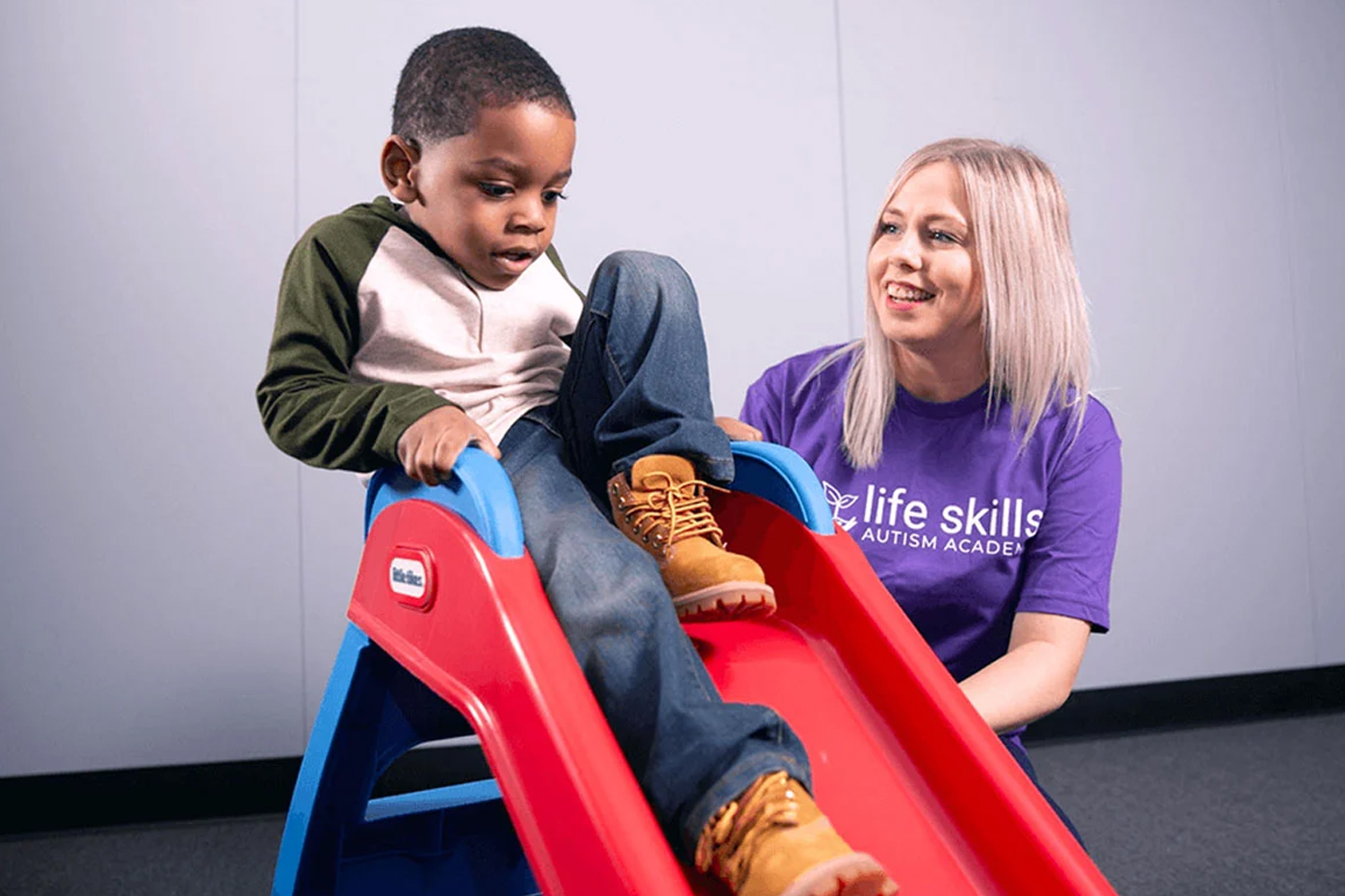
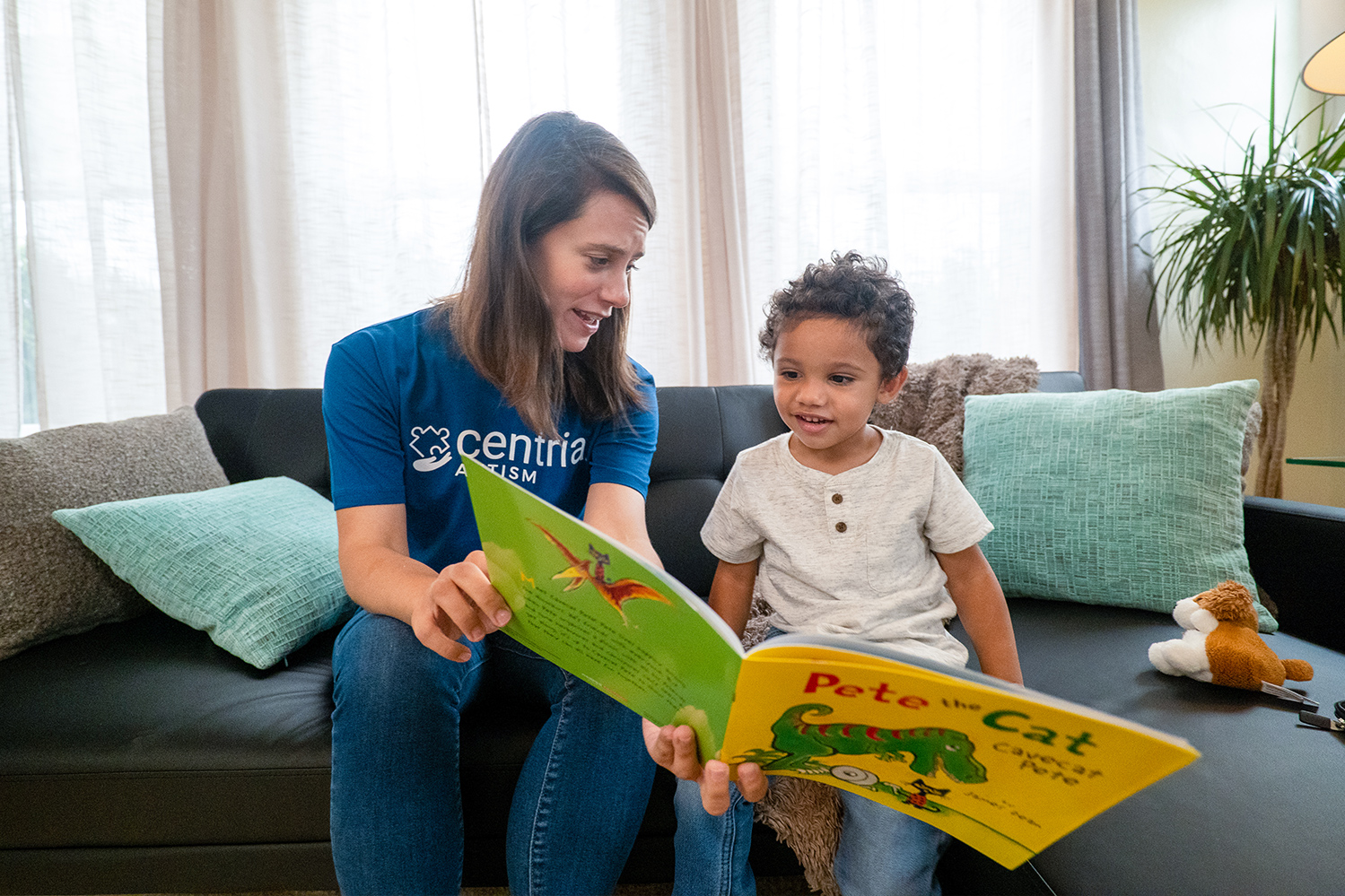
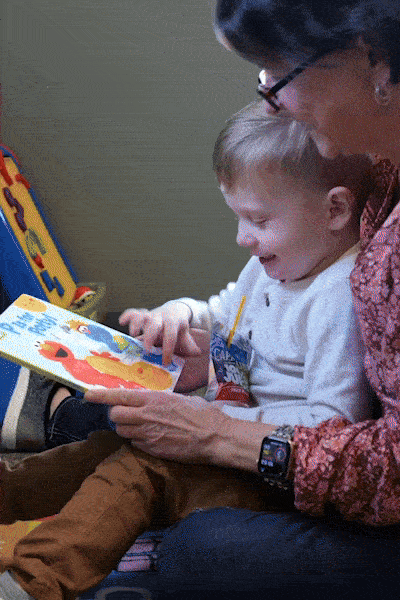

Autism Therapy Success Stories
Centria has helped over 10,000 children make significant progress through our ABA therapy programs. We invite you to watch some of their incredible journeys and see the impact that compassionate, assent-based care can make.
Find Autism Therapy Services Near You
Centria offers ABA therapy services across multiple locations, ensuring that families everywhere have access to the support they need. Find a Centria location near you.
We Are Here to Answer Any of Your Questions
9 MONTH-OLD MILESTONES
Bears weight on legs with support
Sits with help
Babbles (says “mama,” “baba,” “dada”)
Responds to own name
Transfers toys from one hand to the other
1 YEAR-OLD MILESTONES
Crawls
Stands when supported
Searches for things that he or she sees you hide
Says single words like “mama” or “dada”
Points to things
18 MONTH-OLD MILESTONES
Points with intent to show things to others
Knows what familiar things are used for
Copies others
Gains new words
Knows at least six words
Notices when a caregiver leaves or returns
2 YEAR-OLD MILESTONES
Uses two-word phrases (for example, “drink milk”)
Knows what to do with common things such as brushes, phones, forks and spoons
Copies actions and words
Follows simple instructions
3 YEAR-OLD MILESTONES:
Copies adults and friends
Takes turns playing games
Follows instructions with 2 or 3 steps
Says their own first name and age
4 YEAR-OLD MILESTONES
Enjoys doing new things
Would rather play with other children than by themselves
Able to name some colors and numbers
Can tell you what they think will happen next in a book
If your child is displaying any sign of developmental delays when comparing to their expected milestones, it’s important to speak to your child’s physician as a diagnostic test or screening for autism spectrum disorder may be necessary.
- Impaired Social Communication Skills
- Impaired Communication Skills
- Repetitive or Restricted Behaviors
- Other Behaviors of Concerns
Step 1: Screening
A screening, like the M-Chat®, can help identify the likelihood that your child may have autism. Screenings are not a formal diagnosis and should be used in conjunction with a formal diagnosis appointment.
Step 2: Diagnosis
Working with a medical professional who can provide a formal diagnosis, such as a pediatrician or licensed psychologist, you and your child will complete a diagnostic test to determine if a child has an official diagnosis of ASD.
Step 3: Insurance Navigation
Working with your insurance provider, we will help navigate the process to verify if coverage is provided. In addition, we will help you submit all the necessary paperwork to obtain an authorization from your provider to receive ABA therapy as a covered benefit.
Step 4: Assessment
A Centria Autism Supervising Clinician will meet with you and your child to complete an assessment, which is a series of tests that determine what therapy level is recommended. Also known as “treatment intensity”, the dosage recommendation of ABA therapy is commonly prescribed in hours per week.
Step 5: Treatment Planning
Once your insurance provider approves the assessment and therapy hours, a Centria Autism Supervising Clinician will sit down with you and your child to discuss an individualized, child-centric treatment plan. This plan will be centered around the needs of your child, unique to your child, and with your input.
- Home-based therapy takes place directly in your home, with a Behavior Technician coming to your home to provide therapy to your child.
- Center-based therapy takes place in ABA therapy centers designed to provide therapy to children diagnosed with ASD.
- The location of therapy is based on the treatment plan established by a Board Certified Behavior Analyst (BCBA). A BCBA will determine the most appropriate therapy setting based on the individual child’s therapy goals.
Looking for a Career in Autism?
If you’re passionate about making a difference in the lives of children with autism, consider joining our team. We offer a range of career opportunities in ABA therapy and related fields.


